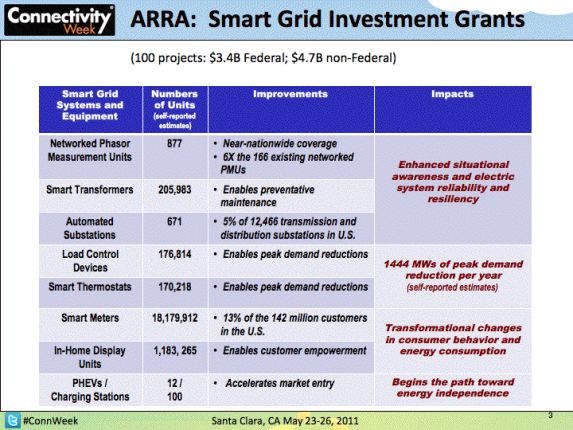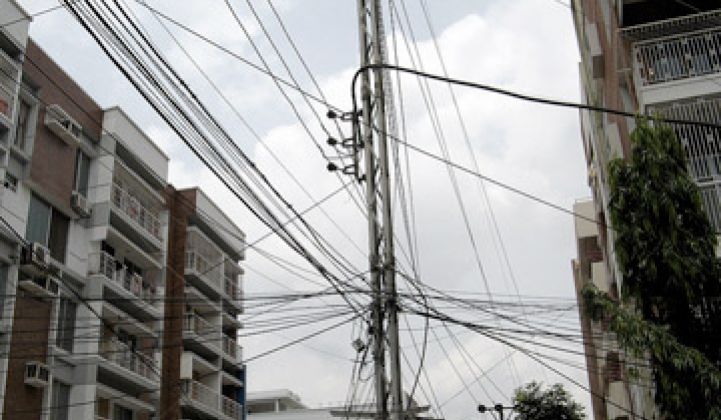Santa Clara, California -- In advance of Connectivity Week, one of the largest smart grid events, Erich Gunther of EnerNex and Chris Hickman of Innovari briefed the press on the current state of the smart grid and what to be looking for in the future of smart grid technology and policy.
The event this week will touch on getting into this market if you're currently in the IT field, consumer impacts, smart grid benefits, investments, standards, and demand response.
Here's a quick roadmap of the event and the market:
ARRA Smart Grid Investment
Gunther said that The American Recovery and Reinvestment Act has touched a significant portion of the smart grid with investment and action in:
- Phasors
- Smart transformers and solid-state transformers
- Automated substations
- Load control devices
- Smart thermostats
- Smart meters
- In-home displays
- PHEV charging stations
Gunther cited 100 projects with $3.4 billion in ARRA investment and $4.7 billion in non-ARRA investment. Interestingly, ARRA projects provide less feedback than the non-ARRA projects. There's a wealth of project status information at the SGI Clearing House and in their project map.
See the slide below for more ARRA info.

Standards Successes and Roadblocks
Gunther declared the NIST SGIP standards process "a resounding success" with standards efforts accelerated many times over normal. Gunther said the NEMA standards were finalized in 90 days and the IEEE standard was finalized in 6 months.
Other standards victories were in the the OpenADR (Automated Demand Response) and OpenADE (Automated Data Exchange). On the consumer side, how do you send a price signal to a device or an energy management system?
On the negative side, Gunther cited SEP 2.0 technical issues in the ZigBee Alliance. He said there was currently an impasse that centers on rehashing a debate from June 2010, when a decision was made to proceed with HTTP/TCP. He characterized it as a "real potential rift" and "one of the most significant things happening right now."
One vendor (Ember) has 80 percent of the ZigBee chip market and their reference design doesn't support the entire SEP 2.0 stack. With that decision, "Ember might be shooting itself in the foot," according to Gunther. There are alternative suppliers like Atmel and TI in the next generation of meters -- "Bottom line is that there are opportunities in the chip world."
Consumer RF Worries
Gunther spoke to me about the lack of education and consumer outreach that has allowed consumer conspiracy theories to spawn. The socialist government does not want to control your electric blanket or thermostat. And smart meters put out less energy than your microwave and your cell phone. Gunther said, "The RF issue is a distraction," while Hickman reiterated that "EMF research has not drawn a conclusion."
Addressing the RF issues, Hickman said: "Enough. Stop the stupid."
We'll be reporting on Connectivity Week events all week long.



